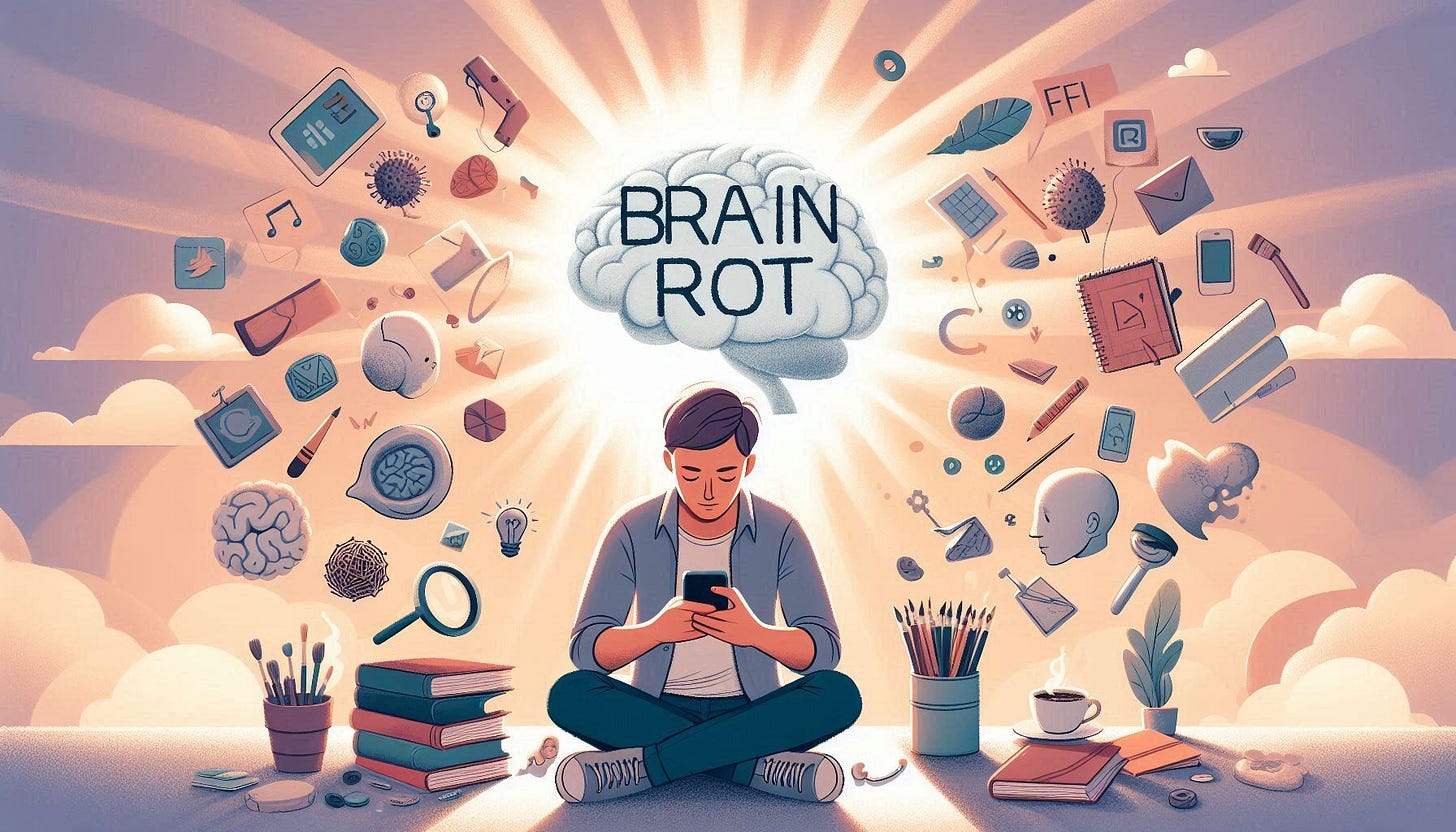Stop Scrolling, Save Your Brain
Have you ever found yourself scrolling on your phone for hours? You’ve lost track of time, your mind feels fatigued, your body is tired, and you can’t even think straight. There’s a term for this—it’s called brain rot.
What is Brain Rot?
Brain rot is a condition where your mind and body suffer due to excessive screen time. Here are some common examples:
1. Zombie Scrolling: You pick up your phone as a normal person and end up scrolling until you feel like a zombie—no thoughts, no emotions, only consuming media reel after reel, video after video.
2. Compulsive Video Gaming: You get hooked on a game’s world, characters, and endless possibilities, becoming so focused on it that real life takes a back seat.
3. Doomscrolling: Constantly searching for negative news from around the world, you end up stuck in a loop of upsetting information, wanting to stay "up to date" on everything bad happening.
4. Social Media Addiction: Constantly checking your phone for notifications, messages, DMs, comments, and likes can split your attention, even when you’re doing other things.
Negative Effects of Scrolling
What’s the harm in just checking your phone or scrolling on your computer? How does it really impact you?
In the next two minutes, I’ll explain how constant scrolling affects your brain, life, and health—and for this part, let’s take a walk together.
While scrolling, your brain goes through a dopamine loop. As you finish one reel, anticipation builds for the next one, and your dopamine spikes. But as soon as the next reel begins, dopamine falls, giving you a brief sense of satisfaction. Then anticipation builds again, and the only way to get that reward is to keep scrolling. This loop happens in the limbic system, the primitive part of your brain, bypassing your prefrontal cortex (PFC) and conscious control. You’re caught in a cycle—hence, brain rot—where you’re like a vegetable, trapped in impulsive emotions.
Another misconception is thinking of scrolling as relaxation. Actually, every reel sends you on an emotional roller coaster: one reel makes you laugh, the next makes you sad, then jealous, then afraid. If you’re doomscrolling, the flood of negative news can push your brain and body into stress mode. Scroll long enough, and you’ll feel like you’ve done a lot of work—now you’ll actually need a real break.
Ways to Get Out of Brain Rot
Now that we know what brain rot is and how it affects us, let’s talk about what to do about it. Here are five strategies:
1. Curiosity: Open an app with a clear idea of what you want to learn or explore. Let curiosity—not the algorithm—guide what you consume. This way, you’ll be more likely to find valuable content.
2. Creativity: Use what you learn to create something of your own. Talk about it, write it down, or share it with friends. Creativity is the antidote to brain rot because it engages your prefrontal cortex.
3. Set Boundaries: Create compartments for social media use—set clear boundaries for time and place, and respect them. Use timers or app limits to manage your time on social media.
4. Build Real Connections: Connect with people outside of social media. Many friendships start online, but the most meaningful moments are offline.
5. Train Your Prefrontal Cortex: Strengthen your PFC to resist impulsive scrolling. I have a video on ways to strengthen your prefrontal cortex, so check it out.
See you in the next blog, and don’t let your brain rot.
Cheers!
Sid.
PS: If you are looking to learn more about Neuroscience: https://sidwarrier.com/courses





